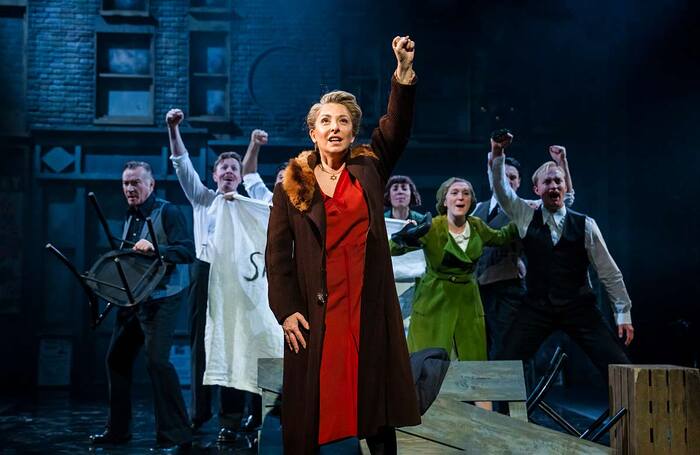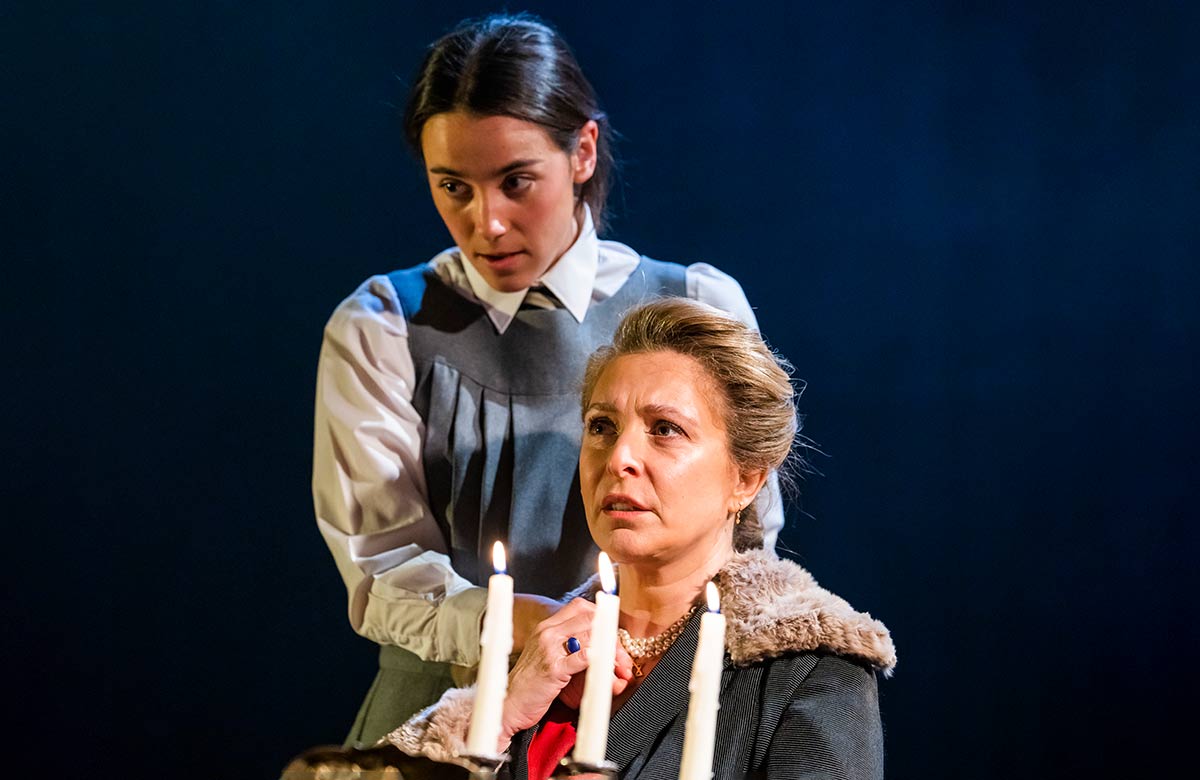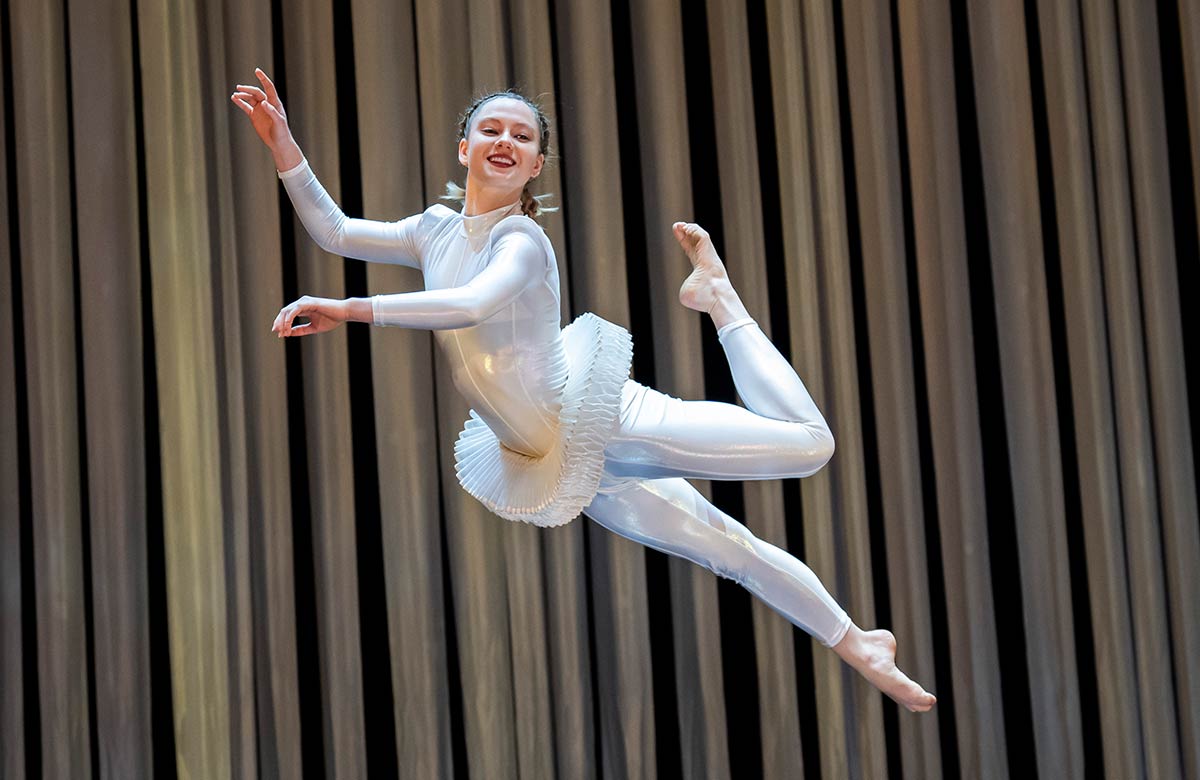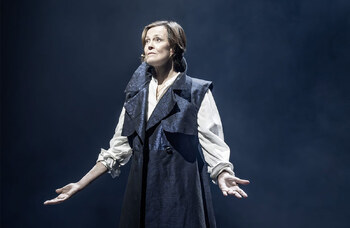The Merchant of Venice 1936 review


Stylish, timely and cleverly realised reimagining of Shakespeare
Many a production has wrestled with the thorny issues that lie, from a modern, more enlightened perspective, at the heart of Shakespeare’s problematic play. Tracy-Ann Oberman and director Brigid Larmour’s skilfully reimagined, 1930s London-set adaptation successfully reframes the prejudice that runs through it.
Oberman’s gender-switched Shylock is presented as a fiercely loyal, heavily accented Jewish East End matriarch who is willing to do anything to protect her family and its fortune. Her money-lending business is located on Cable Street, the site of a very real clash between Oswald Mosley’s far-right supporters and anti-fascist protestors in 1936. But even before the riots begin – strikingly depicted through the news-reel footage in Greta Zabulyte’s projections and Sarah Weltman’s sound – she is mocked and smeared by the community around her, among them her backstabbing housekeeper Gobbo, a gossip-monger played with devilish relish by Jessica Dennis.
The historical backdrop to Larmour’s subtly reworked adaptation – Shakespeare’s verse is largely kept intact, with just a few “golly”s and other Wodehousian exclamations thrown in – helps to explain the extremeness of Shylock’s actions and her hatred of the titular merchant. It also helps hugely that Antonio (a disquietingly steely and self-assured Raymond Coulthard) is recast here as a loathsome, black-shirted, red armband-wearing British fascist.
Continues...
Pitting Shylock and her family against an aristocratic, antisemitic elite – which includes Adam Buchanan’s horribly pitch-perfect, pencil-moustache-sporting spiv Bassanio and Hannah Morrish’s spoilt, Mitford sister-like heiress Portia – makes the denouement, where Shylock is duped out of the money she is owed and forced to convert to Christianity, all the more shocking. The moment where Xavier Starr’s thuggish Gratiano throws a glass of water in Shylock’s face – the closest we get to seeing an actual act of violence – provides a visceral jolt that is characteristic of Larmour’s crisply directed, well-judged production.
Audience members seated at tables on either side of the stage are invited to swell the numbers of protestors standing defiant against the forces of fascism in the play’s deeply affecting finale. Liz Cooke’s subtle multipurpose set and distinctive, Peaky Blinders-ish costumes are smartly stylish. And, in what is clearly a passion project for Oberman, it’s all anchored by her magnetic performance: playful, impassioned and heartbreaking.
More Reviews
Recommended for you
More Reviews
Recommended for you
Most Read
Across The Stage this weekYour subscription helps ensure our journalism can continue
Invest in The Stage today with a subscription starting at just £5.99













